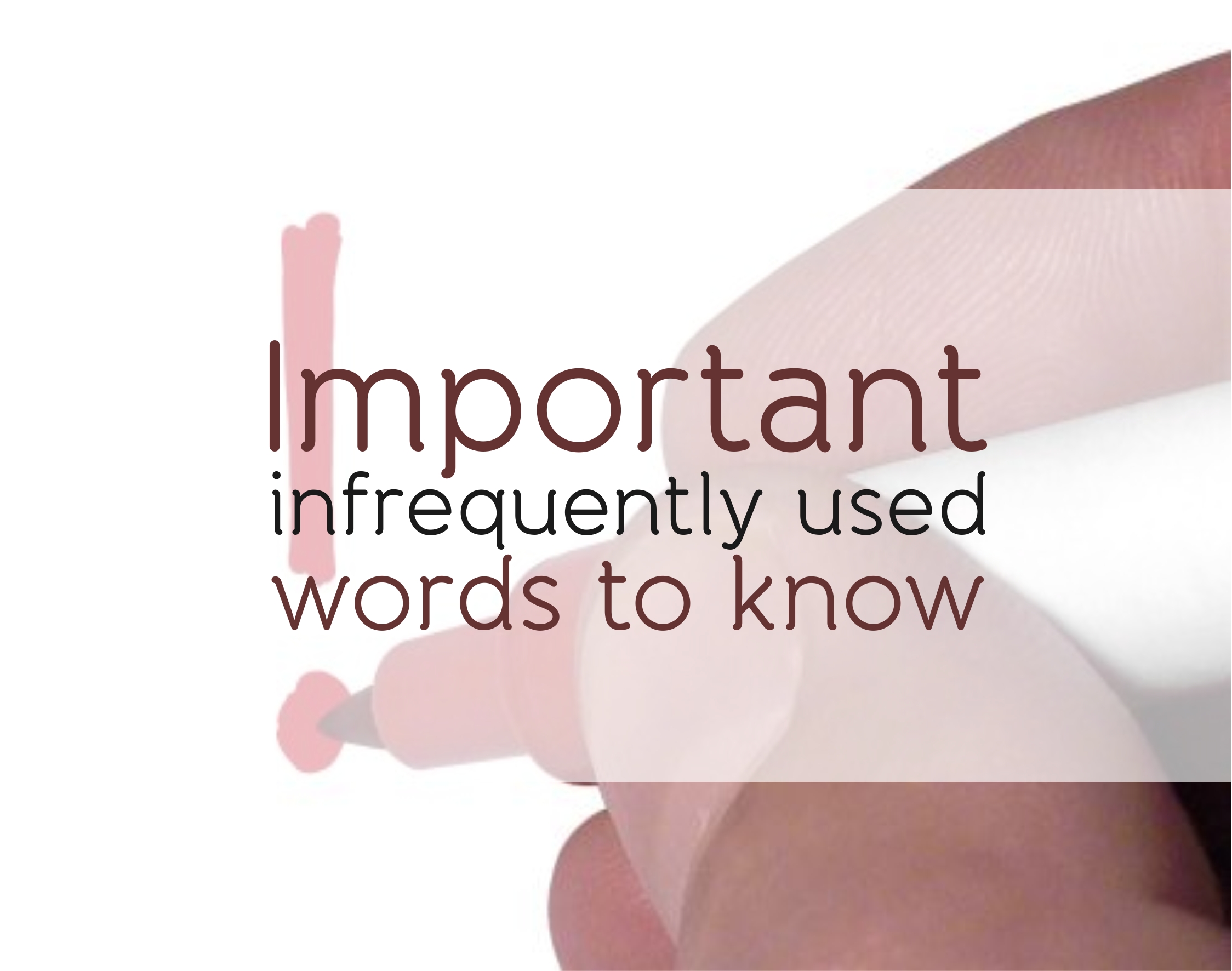Lost in Long Sentences?

When reading essays, books, and novels, many people enjoy traveling through long, complex sentences with twists and turns that lead to a satisfying end. But in business writing, readers want a short, clear path to understanding. Follow the four tips below to edit long sentences.
1. Include just one idea per sentence. When sentences have several ideas, readers need to figure out the relationship between the ideas. They need to suspend their understanding until they get to the period (full stop). In contrast, readers can quickly grasp each one-idea sentence and move on to the next.
The sentence below packs in three ideas. The punctuation makes is easy to recognize them.
Test Yourself Number 1: Revise this three-idea sentence, whose length makes readers move slowly:
Our credit department has requested that you provide a copy of your exempt sales tax document and that you fill out the top and signature portion of the credit application just for assurance that we have the pertinent contact information correct.Revise the sentence to communicate just one idea per sentence. After you have tried, you can check my revision. It appears at the end of this article.
In baseball, the windup is the pitcher’s actions before releasing the ball. Although important to the pitcher, the windup can distract the batter. The same is true of readers: If you begin a sentence with a fancy windup, you may lose your readers before releasing your main idea. Instead, start with your subject.This sentence has a dizzying windup, which makes it too long and complicated:
Test Yourself Number 2: Start with the subject rather than the long windup in this sentence, so readers do not struggle to understand its meaning:By keeping the three critical success factors in mind and talking with your unit manager or your peer coach whenever you find yourself struggling with an employee issue, you should have the greatest opportunity for success as a new supervisor.
My revision appears at the end of the article.
Your revision might look like mine: The navigation panel on the left side of the screen is the same for all contractors. It helps them navigate through the site to find what they need quickly.
Test Yourself Number 3: Break up this long sentence by inserting a period and replacing and. Then compare your revision with mine, which appears at the end of the article.
Recently there have been several calls and emails from individuals who are using an MS Excel version dated earlier than 2007 and are not able to save their changes based on the instructions provided in the guidelines.
4. Do not let a long list transform your sentence into a solid wall of text. Often you need to include a list in your writing. But a sentence burdened with a long list can become a blur to your reader. If that happens, your reader will not see any of the important information in your list. The solution is to break up the long, heavy sentence into bullet points or short sentences that keep your reader’s attention.
How would you revise this list-heavy sentence?
- Counseling managers on issues ranging from major incidents to employee communications and community relations.
- Representing the company with various groups.
- Supporting the needs of individual plants.
- Managing strategic media opportunities and crisis communications.
- Placing community advertising.
- Publicizing company efforts in environmental stewardship.
Test Yourself Number 4: Restructure this long sentence so that each part stands out:If new information concerning the case should come to your attention, if you should leave the area for more than a few days, or if you should change your address or telephone number, please advise Marie Smith or your insurance agent immediately.
Solution to Number 1:Our credit department has requested that you provide a copy of your exempt sales tax document. Also, please fill out the top and signature portion of the credit application. This step is just for assurance that we have the pertinent contact information correct.Solution to Number 2:You should have the greatest opportunity for success as a new supervisor if you do these two things: Keep the three critical success factors in mind. Talk with your unit manager or your peer coach whenever you find yourself struggling with an employee issue.Solution to Number 3:Recently there have been several calls and emails from individuals who are using an MS Excel version dated earlier than 2007. They are not able to save their changes based on the instructions provided in the guidelines.Solution to Number 4:Please immediately advise Marie Smith or your insurance agent if any of these occurs:
-
New information concerning the case comes to your attention.
-
You leave the area for more than a few days.
-
You change your address or telephone number.
10 Simple Rules For Good Writing

Whether you’re writing fiction or non-fiction, the rules for good writing are fundamentally the same.
1. Express, not impress.
Good writing is not about the number of words you’ve produced, the quality of the adjectives you’ve written or the size of your font–it’s about the number of lives you’ve touched! It’s whether or not your reader understands you. It’s about expression, not impression.
2. Simple sentences work best.
– The only possible option in order to accelerate the growth of the food industry is to focus on the fact that the target market of this business demands convenience, competence and cost-effectiveness.
– Better: The food industry can grow faster if food trucks focus on convenience, competence and cost-effectiveness.
3. Active, rather than passive.
– The offering price was established by the real estate vendor and the negotiation process was initiated by the real estate buyer.
– Better: The real estate vendor set the offering price, and the real estate buyer started negotiating.
4. Know who your target audience is.
Who are you writing for? Who do you expect to read your article, your book, or your blog post? Will they care about what you’re talking about? Will they understand the message that you’re trying to get across? Good writing isn’t generic; it’s specific because it’s targeted towards a group of people with something common binding them.
5. Read it aloud.
Reading your works out loud allows you to notice something that you might not have noticed if you were just reading it silently. Go on, read them out loud now. Also, try to listen to your work objectively as you read it. Are you making sense? Or are you simply stringing a couple of words together just to fill a gap?
6. Avoid using jargon as much as possible.
Not everyone in your audience will know what a “bull market” is. Not everyone knows that “pyrexia” is basically the same thing as “a fever”. And surely you can come up with a better term for high blood pressure than “hypertension”?
7. In terms of words, size matters.
Please, don’t strain yourself by browsing the Internet, looking for complicated and fancy-sounding words. Less is always more.
– The man gave a me look so sharp that I sincerely believed it could pierce my heart and see my innermost fears.
– Better: The man glared at me.
8. Being positive is better than being negative–even in writing!
– I did not think that the unbelievable would not occur.
– Better: I thought the unbelievable would happen.
9. Set aside time for revising and rewriting–after you’ve written the whole content.
I’m not suggesting that you should edit each time you’ve finished a paragraph–that would just be tedious. What I’m telling is that you should first give yourself some time to finish the content prior to editing. Write away. Don’t edit yet. Don’t focus on the grammar yet. Don’t worry about the syntax, the synonym, the antonym or the order that you’re using.
Write for yourself, but mostly, write for your target audience. Write the message clearly and don’t be afraid to express your thoughts. Don’t censor yourself yet. Let the words flow. Don’t erase what you’ve written yet.
Right now, it’s all about expression, about art and about your imagination.
All the editing and the fixing will come later.
10. Write. All the time.
Good writing is simply always writing. Write when you’re sad. Write when you’re scared. Write when you don’t feel like writing.
Simple but Intelligent Word Choices
#10: Lucid
#9: Austere
#8: Volatile
#7: Stoic
#6: Caustic
#5: Maudlin
#4: Lurid
#3: Glib
#2: Cavalier
#1: Demure
Read more…
6 incredibly useful spelling rules from childhood
In English, there are words that sound the same but are spelled differently (such as “their,” “they’re,” and “there”); words with letters that have nothing to do with how the word is pronounced (“brought,” “although”); words that contain silent letters (“gnat,” “pneumonia”); and words that simply don’t follow any spelling rules.
Let’s revisit those spelling rules we learned long ago and the words that break those rules.
1. “I before E except after C or when sounded as A as in neighbor and weigh”
Words that break this rule:
- ancient
- species
- science
- sufficient
- society
- either
- foreign
- leisure
- protein
2. “When two vowels go walking, the first one does the talking?” (Meaning when there are two vowels in a row, the first usually has a long sound and the second is silent.)
Words that break this rule:
- said
- through
- leather
- early
- piece
- build
- guide
- shoes
- does
- guest
- break
3. Final silent E makes the vowel say its name (such as “rat,” “rate,” “hid,” “hide”)
Words that break this rule:
- have
- done
- lose
- where
4. Plural nouns—add an “s” or an “es”
Words that break this rule:
- goose/geese
- man/men
- mouse/mice
- tooth/teeth
- alumnus/alumni
- series
- deer
- sheep
- species
5. If a word ends with an “ick” sound, spell it “ick” if it has one syllable (“trick”) and “ic” if it has two or more syllables (“sarcastic”)
Words that break this rule:
- candlestick
- seasick
- nitpick
6. “A” versus “an”—if the first letter is a vowel use “an”; if the first letter is a consonant, use “a.”
Words that break this rule:
- an honest
- an honorable
- a unicorn
- a united front
- a urologist
- a onetime
Readers, any other rule-breaking words to share?
Laura Hale Brockway is an Austin-based writer and editor. Read more of her work at Impertinent Remarks.
SOURCE
18 Common Words That You Should Replace in Your Writing

It’s a familiar scene: you’re slumped over your keyboard or notebook, obsessing over your character. While we tend to agonize over everything from structure to backstory, it’s important to weigh how you write something too. A perfectly constructed world is flat on the page if you use feeble, common words. When you’re finished constructing your perfectly balanced world, do your writing a favor and take another pass to weed out these 18 haggard words.
Good
High on any list of most used English words is “good.” While this word may appear to be the perfect adjective for nearly anything, that is precisely what makes it so vague. Try getting more specific. If something’s going well, try “superb,” “outstanding” or “exceptional.”
New
Another of the common words in English is “new.” “New” is an adjective that doesn’t always set off alarm bells, so it can be easy to forget about. Give your writing more punch by ditching “new” and using something like “latest” or “recent” instead.
Long
Much like “new,” “long” is spent, yet it doesn’t always register as such while you’re writing. Instead of this cliché phrase, try describing exactly how long it is: “extended,” “lingering” or “endless,” for example.
Old
“Old” is certainly one of those common words that means more to readers if you’re specific about how old a subject is. Is it “ancient,” “fossilized,” “decaying” or “decrepit”?
Right
“Right” is also among the common words that tends to slip through our writer filters. If somebody is correct, you could also say “exact” or “precise.” Don’t let habit words like “right” dampen your writing.
Different
Here’s another adjective that falls a bit flat for readers, but can also easily be improved by getting more specific. Saying something is “odd” or “uncommon” is very different than saying it is “exotic” or “striking.”
Small
“Small” is another adjective that is too generic for writing as good as yours. Use “microscopic,” “miniature” or “tiny” instead. Even using “cramped” or “compact” is more descriptive for your audience.
Large
Just like relying too much on “small,” we tend to describe large things as, well, “large.” Specificity is a big help with this one too: could your subject be “substantial,” “immense,” “enormous” or “massive”?
Next
Whenever we describe something coming “next,” we run the risk of losing our readers. Good options to make your reading more powerful include “upcoming,” “following” or “closer.”
Young
Another case of being too generic is what makes “young” a problematic adjective. If you want your writing to be more captivating, try switching “young” out for “youthful,” “naive” or “budding.”
Never
“Never” is also among common words to use sparingly. Not only is it a common, stale descriptor, it’s also usually incorrect. For something to never happen, even one instance makes this word inaccurate. Try “rarely,” “scarcely” or “occasionally” instead.
Things
“Things” is another repeat offender when it comes to worn out words. Another word where specificity is the key, try replacing “things” with “belongings,” “property” or “tools.”
All
Just like “never,” “all” is an encompassing, absolute term. Not only is “all” unoriginal, it’s not usually factual. Try using “each” and “copious” instead.
Feel
“Feel” is also in the company of common English words. Try using “sense,” or “discern” instead. You can also move your sentence into a more active tense: “I feel hungry” could become “I’m famished,” for example.
Seem
“Seem” is bad habit word we are all guilty of using. Regardless of how well you think your sentence is constructed, try switching “seem” out for “shows signs of.” “Comes across as” is another good option to give your writing more power.
Almost
Another easy adjective to let slip by, “almost” is a wasted opportunity to engage your readers. “Almost” is more interesting if you say “practically,” “nearly” or “verging on” instead.
Just
“Just making” it or “just barely” affording something isn’t very descriptive. To truly grab a reader, we must do better. Try “narrowly,” “simply” or “hardly” to give your phrasing more weight.
Went
Last but not least, avoid using the common word “went” to describe your subject. “Went” is a word that lacks traction. Try using “chose,” “decided on” or “rambled” to truly grab your readers.
SOURCE
Image courtesy
12 Useful Websites to Improve Your Writing

1. Words-to-Use.com — A different kind of thesaurus.
2. OneLook.com — One quick dictionary search tool.
3. Vocabulary.com — The quickest, most intelligent way to improve your vocabulary.
4. ZenPen.io — A minimalist writing zone where you can block out all distractions.
5. 750words.com — Write three new pages every day.
6. Readability-Score.com — Get scored on your writing’s readability.
7. YouShouldWrite.com — Get a new writing prompt every time you visit.
8. WriterKata.com — Improve your writing with repetitive exercises.
9. IWL.me — A tool that analyzes your writing and tells you which famous authors you most write like.
10. HemingwayApp.com — Simplify your writing.
11. FakeNameGenerator.com — Generate fake names for your characters.
12. Storyline.io — Collaborate on a story with others by submitting a paragraph.
173 foreign words and phrases in English language

Over the centuries the English language has assimilated words and phrases from a variety of other languages. In context, those listed here are often printed in italics. Read More…
Important Infrequently Used Words To Know

Paul V. Hartman
(The Capitalized syllable gets the emphasis)
A
alacrity a-LACK-ra-tee cheerful willingness and promptness
anathema a-NATH-a-ma a thing or person cursed, banned, or reviled
anodyne AN-a-dine not likely to cause offence or disagreement and somewhat dull//anything that sooths or comforts
aphorism AFF-oar-ism a short, witty saying or concise principle
apostate ah-POSS-tate (also: apostasy) person who has left the fold or deserted the faith.
arrogate ARROW-gate to make an unreasonable claim
atavistic at-a-VIS-tic reverting to a primitive type
avuncular a-VUNC-you-lar “like an uncle”; benevolent
Demystify Writing Misconceptions

“Demystify Writing Misconceptions” was written by Joe Moxley.
Learn the beliefs that empower successful academic authors.
To become a competent, confident writer, you may find it useful to analyze your attitudes about writing. After all, your assumptions about how writers work can limit your imagination and the quality of your finished product. You can debunk a truckload of myths about writing by analyzing how you write, how your peers write, and how professional writers write.




























